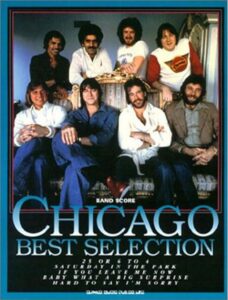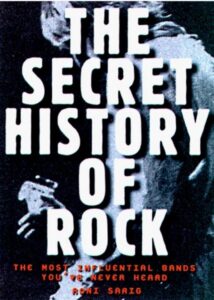Browse in the Library:
Or browse in the categories menus & download the Library Catalog PDF:
If You Leave Me Now – Chicago with sheet music
Browse in the Library:
Or browse in the categories menus & download the Library Catalog PDF:

If You Leave Me Now – by Chicago
is a soft rock song performed by the American rock band Chicago ; is one of the songs on their successful tenth studio album Chicago X (1976). It was written and sung by bassist Peter Cetera , and produced by James William Guercio and released as a single on July 31, 1976.
It is also the title of a compilation album released by Columbia Records (Columbia 38590) in 1983.
The single topped the US charts on October 23, 1976, where it stayed for two weeks, making it the band’s first number one, as well as also reaching number one on the Easy Listening charts . 1 It also reached number one in the UK charts on November 13, 1976, holding that position for three weeks.
“If You Leave Me Now” also managed to be the most representative song of the band around the world, after topping the charts in other countries, such as Australia and Britain. It won Grammy Awards for Best Instrumental Arrangement with Accompanied Vocals and for Best Pop Performance by a Duo or Group with Vocals .
In turn, the B-side of the 45 RPM single “If You Leave Me Now” was “Mama Mama”, an orchestral Pop ballad also composed by Peter Cetera .
Chicago

Group of Chicago, a town in the US state of Illinois, created in 1967.
Its original name was the Chicago Transit Authority (previously known as The Missing Links and The Big Thing) and its first formation was composed of:
Guitarist and vocalist Terry Kath (born January 31, 1946)
Keyboardist and singer Robert Lamm (born October 13, 1944)
Drummer Danny Seraphine (born August 28, 1948)
Saxophonist Walter Parazaider (born March 14, 1945)
Trumpeter Lee Loughnane (born October 21, 1946)
Trombonist James Pankow.
Their sound, influenced by bands like Blood, Sweat & Tears or Electric Flag, fused rock with jazz, soul, classical music or funk.
At the end of the year, bassist and singer Peter Cetera (born September 13, 1944), a former member of the band The Exceptions, joined the group.
With the sponsorship of their producer and representative Jim Guercio, the one in charge of definitively baptizing the group, they moved their residence to the city of Los Angeles.
Shortened the name to Chicago due to legal problems, they signed with the Columbia company and released their debut album “Chicago Transit Authority” (1969) , one of their best works that was a bestseller.
The double LP, dominated as usual in the early days of the group’s career by Robert Lamm’s songwriting, contains such hits as:
“Does Anybody Really Know What Time Is It?”
“Questions 67 and 68”
“Beginnings”
The good streak continued with “Chicago II” (1970), a wonderful double jazz rock album that included the well-known songs “Make Me Smile” and “Color My World” among its grooves.
His next works produced by Guercio in the 1970s, with a similar sound but unequal compositional inspiration, were:
Another double album entitled “Chicago III” (1971)
The live album “Chicago IV” (1971), which includes four vinyls in its original version
“Chicago V” (1972)
The direct “Live In Japan” (1972)
“Chicago VI” (1973)
The double “Chicago VII” (1974)
“Chicago VIII” (1975)
“Chicago IX” (1975)
“Chicago X” (1976), an LP featuring Peter Cetera’s beautiful ballad “If You Leave Me Now”
“Chicago XI” (1977)
Despite the general lack of consistency, Chicago sold profusely, tending over time and after the huge success of “If You Leave Me Now” to compose sentimental pop songs, usually ballads and soft rock tunes.
That time provided them with many triumphs in simple format, with songs such as:
“Saturday In The Park”
“Just You ‘N’ Me”
“Old Days”
“Baby, What A Big Surprise”
themselves collaborated
Or the beautiful ballad “Wishing You Were Here”, in which the Beach Boys .
Furthermore, their concerts in the 1970s were a huge event in every American city they performed.
In 1978 there were several novelties in the band that caused its commercial decline: the disconnection with its producer and manager Jim Guercio and the accidental death due to a shot of Terry Kath, who was replaced by Donnie Dacus.
Kath died at only 31 years of age.
Phil Ramone produced “Hot Streets” (1978), an album that did not enter high positions in the sales charts for the first time in his career.
Neither the disco “Chicago XIII” (1979), again produced by Ramone, nor the mediocre “Chicago XIV” (1980), an album produced by Tom Dowd (a collaborator with the Allman Brothers or Black Oak Arkansas ) managed to come back the group’s commercial flight from Illinois.
The ballad “Hard To Say I’m Sorry” managed to return Chicago to the top of the singles charts around the world, as did the LP “Chicago 16” (1982), an album produced by David Foster that featured new guitarist Bill Champlin, replacement for Donnie Dacus.
After the release of “Chicago 17” (1984), which contains the song “You’re The Inspiration”, Peter Cetera, who had become the main force of the ensemble, left the group to pursue a solo career that had become started with the album “Peter Cetera” (1981).
Previously, Robert Lamm had already released his first self-titled album, “Skinny Boy” (1975).
Cetera was replaced by Jason Scheff, but Chicago would never be the triumphant band it had been in the 70s. Some unworthy and expendable live shows, compilations and studio work such as:
“Chicago 18” (1986)
“Chicago 19” (1988)
“Twenty 1” (1991)
“Night & Day: Big Band” (1995)
“Chicago XXV: The Christmas Album” (1998)
These were the next albums by the legendary American band, which continued to perform live regularly and with popular success.
In 2006 they returned to the studio to record “Chicago XXX” (2006).
Later appeared:
“Chicago XXXII: Stone Of Sisyphus” (2008)
“Chicago XXXIII: O Christmas Three” (2011)
“Chicago XXXV: The Nashville Sessions” (2013)
“Chicago XXXVI: Now” (2014)
“Chicago XXXVII: Chicago Christmas” (2019)
“Chicago XXXVIII: Born For This Moment” (2022)
In 2016, they entered the Rock and Roll Hall of Fame, presented by Rob Thomas.
Chicago: Discography
Studio albums
Chicago Transit Authority (1969)
Chicago (1970)
Chicago III (1971)
Chicago V (1972)
Chicago VI (1973)
Chicago VII (1974)
Chicago VIII (1975)
Chicago X (1976)
Chicago XI (1977)
Hot Streets (1978)
Chicago 13 (1979)
Chicago XIV (1980)
Chicago 16 (1982)
Chicago 17 (1984)
Chicago 18 (1986)
Chicago 19 (1988)
Twenty 1 (1991)
Night & Day: Big Band (1995)Best Sheet Music download from our Library.
Come join us now, and enjoy playing your beloved music and browse through great scores of every level and styles!
Can’t find the songbook you’re looking for? Please, email us at: sheetmusiclibrarypdf@gmail.com We’d like to help you!
